Copper
As the other secondary market for metals’ analysis we’ve Copper priced by its futures contract on the COMEX and GLOBEX. (Because Copper is a secondary rather than a primary BEGOS Market, a comparable Market Value calculation is not maintained).
Market Trend
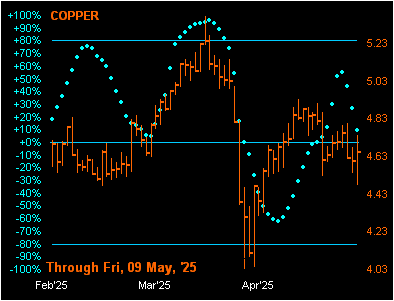
These are Copper’s daily bars for the last three months to-date. The blue dots (aka “Baby Blues”) denote trend consistency. When the blue dots break above their -80% axis, higher prices are anticipated. When the blue dots break below their +80% axis, lower price is anticipated. Either way, the “Baby Blues” are a keen depiction of current trend.
Market Profile
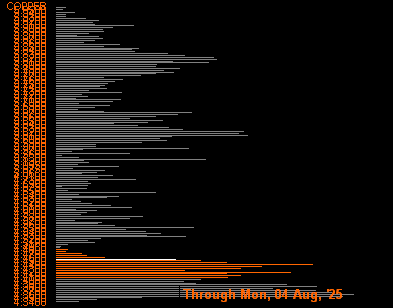
Copper’s Market Profile is essentially the amount of contract volume traded at every price point across the past 10 trading days, (i.e. two weeks). The longest lines are therefore indicative of price support and resistance. The colored lines represent the most recent trading day with the white bar as the last closing price.
Market Magnet
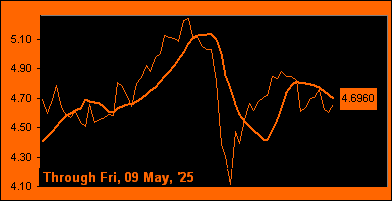
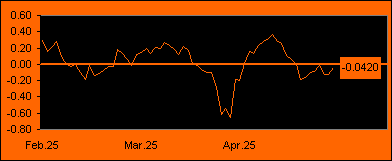
Copper’s Magnet is the volume-weighted consensus price of Copper’s Market Profile. Upon Copper being “attracted” to and crossing the Magnet, we expect price to continue in the same direction. But when the price gets too far away from the Magnet, we anticipate price to be re-attracted to the Magnet.
Upper panel description: the price of Copper and its Magnet level as shown in the box.
Lower panel description: the deviation as shown in the box of Copper from its Magnet.
Market Range
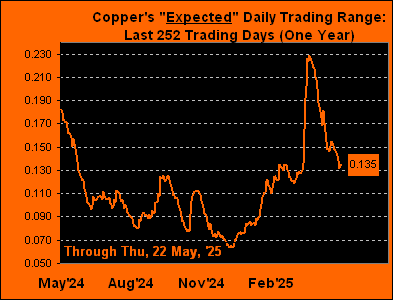
The “Expected Daily Trading Range” (EDTR) is a rational, acceptable estimate as to the number of points the Copper futures may span between the high and low for the ensuing trading day. That number is inside the chart’s box.
Market Rhythm
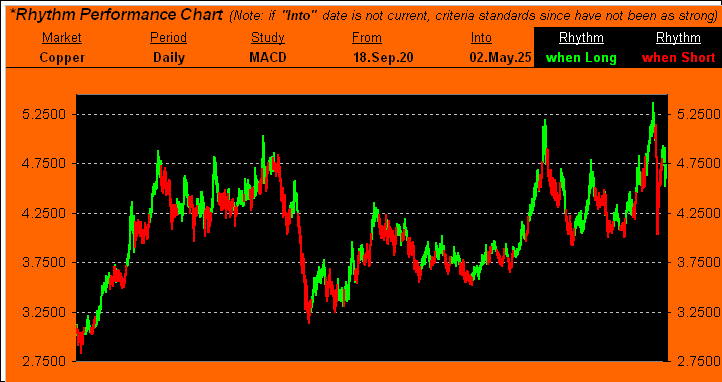
Copper’s best Market Rhythm at present is displayed in this Market Rhythm chart, its attributes as labeled. When this Rhythm has been positive, Copper’s price is shown in Green (i.e. Long), else when negative the price is shown in Red (i.e. Short).